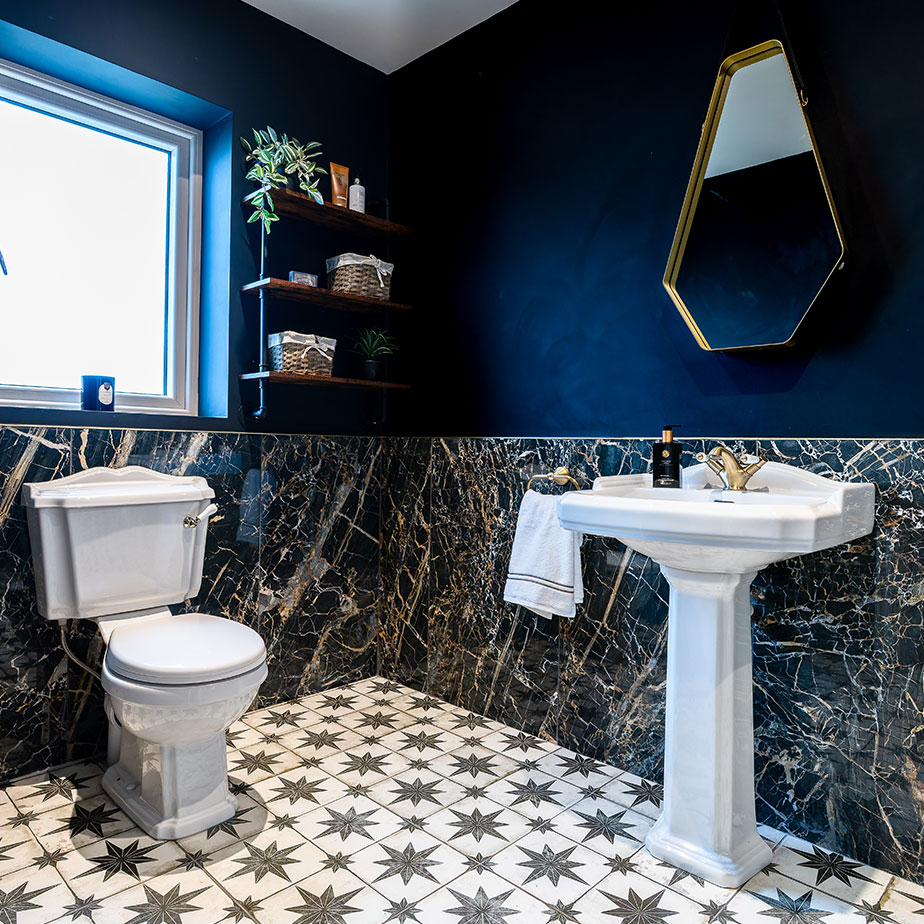Everything you need to know about shower tiles
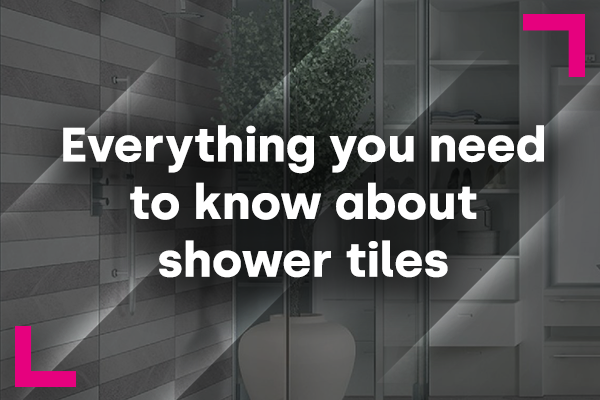
When it comes to choosing shower tiles, your customers will have many things to consider, including everything from what they look like aesthetically, to their quality and suitability for their space.
It’s therefore good to be able to convey key information about different tile types and styles in a clear and concise way, helping customers as required when tiling their bathrooms, kitchens, or any other spaces within the home.
The top things to consider when advising on shower tiles are:
- Size of the shower enclosure and the bathroom in general.
- Customer’s preference for tile style.
- Tile design.
There are, of course, a wide variety of tiles available, so being able to help customers narrow down their choices will help them immensely by offering insightful advice. If you have a good idea of what they’re looking for and what’s possible within their bathroom, along with the type of shower they have (or are planning to have), then you can better recommend particular tiles which might be of interest.
Size of tiles: Customers with smaller bathrooms will benefit from having larger tiles in their shower, as these require fewer grout lines and give the appearance of a larger single surface. As a result, they present the illusion of more space, so are ideal if someone wants to create this effect. They’re also just a good choice for anyone who doesn’t like the idea of regular cleaning, as grouting does require a certain amount of upkeep.
Smaller tiles, on the other hand, can be used to create a more patterned, textured appearance within a room, which can result in a nice aesthetic. However, once again, those styles with more porous or crevice-like surfaces will require cleaning more frequently than larger smooth-surface tiles, so this is something to bear in mind.
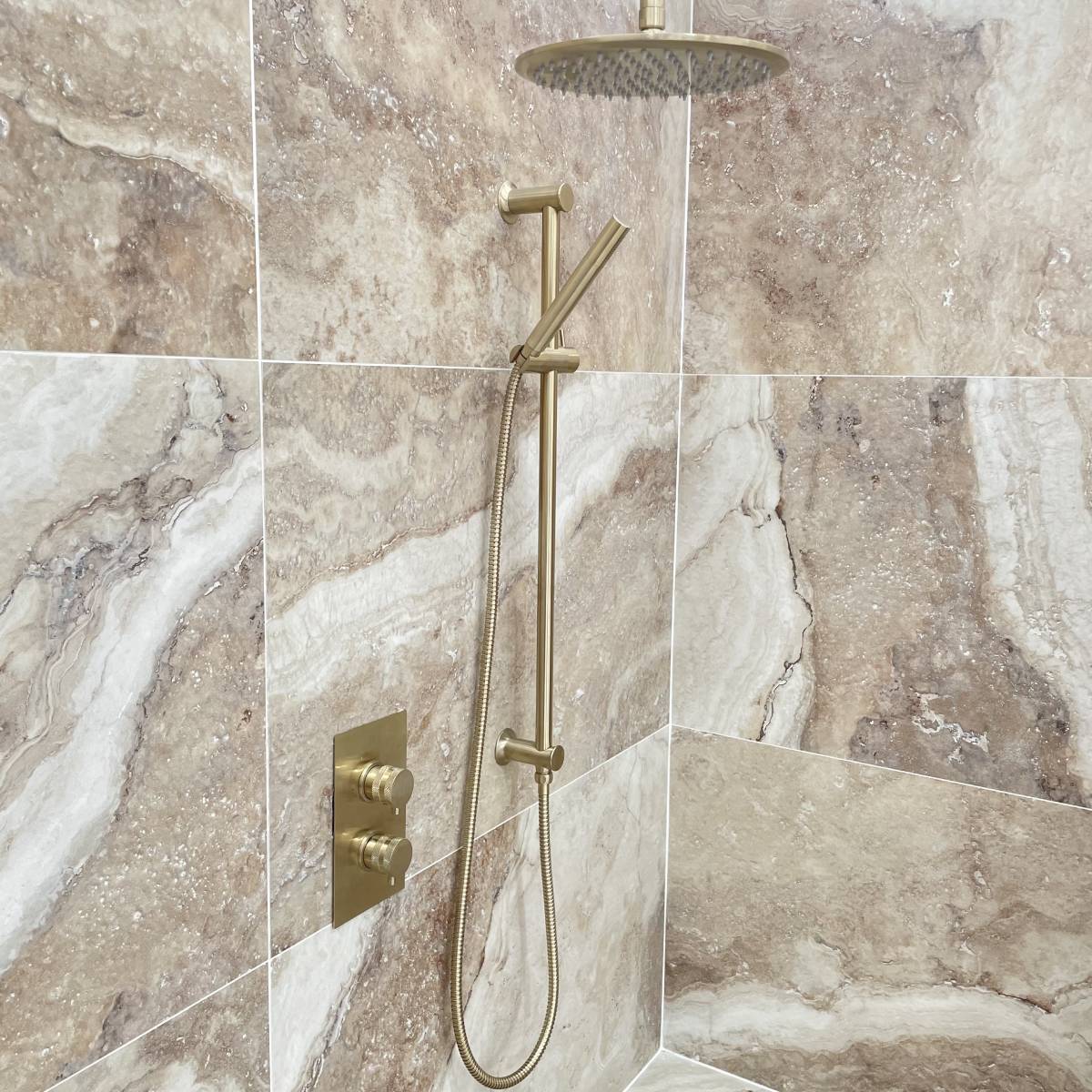
Large format tiles can create a more spacious look and reduce cleaning, with fewer grout lines.
Tile styles: Tile trends come and go, but often, many of the trending styles have a timeless appeal and don’t date easily, so it’s always good to know what’s currently popular, in terms of what you can recommend to customers. Explaining the particular style of a tile in terms of shape and size will help customers make more informed decisions, as they may not always realise what the final effect will be or how it will impact upon the rest of the room.
Depending on which order the customer is designing their bathroom, they may want to choose the shower tiles first, or they may leave these until after selecting a colour scheme and style for the room.
Materials: It might sound obvious but making sure customers understand that their shower tiles need to be able to withstand water and heat – and repeated exposure to these elements – is key when considering which tiles to choose. To help them make their decision, it can therefore be useful to talk through the different materials and highlight their benefits.
Our top tile recommendations for shower walls
- Porcelain: Renowned for its robustness and versatility, porcelain is the ideal choice for shower tiles, though it should be noted that because of its premium quality, it’s a pricier option.
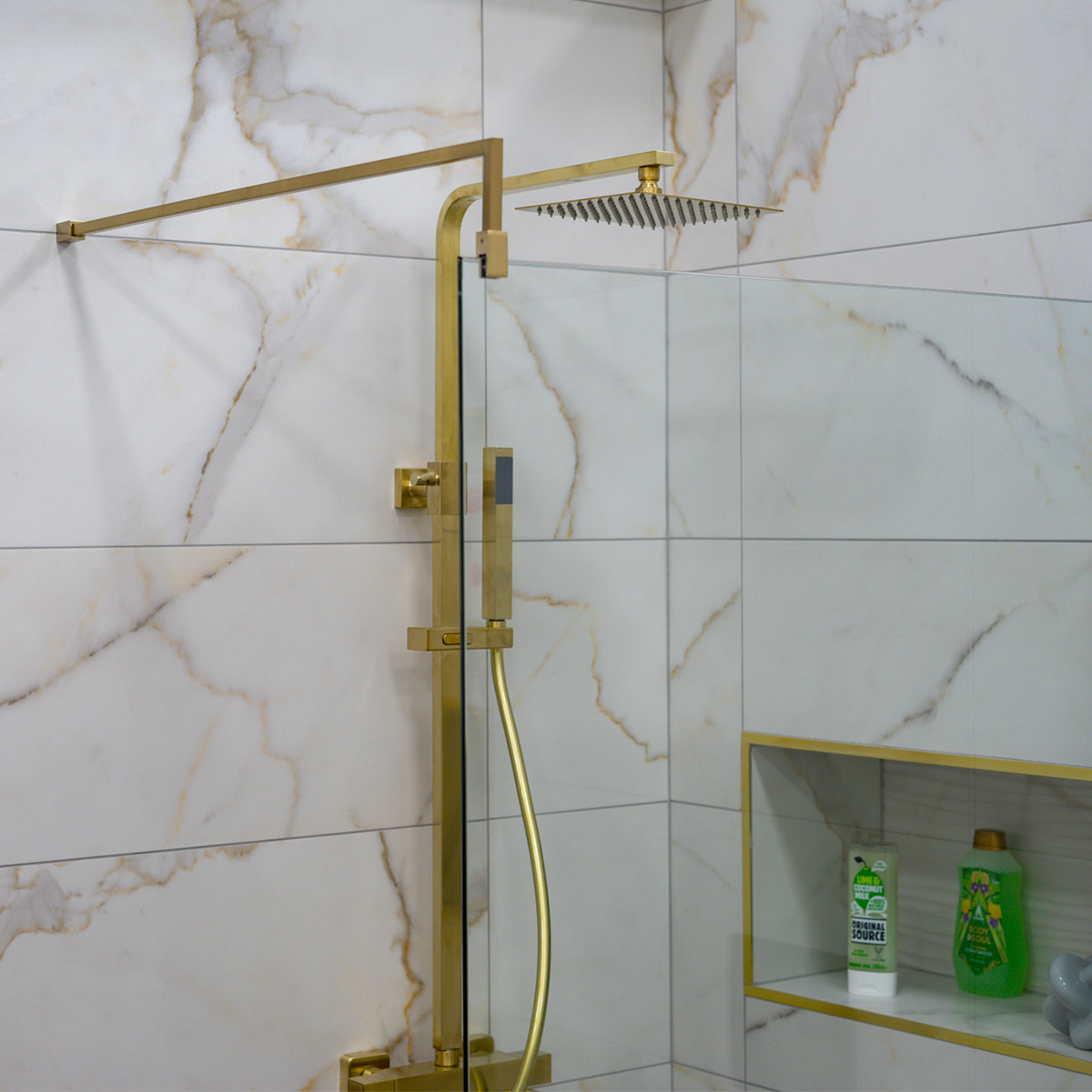
Non-porous surfaces are much better for showers, as they prevent mildew and mould from building up.
As a non-porous material, porcelain is highly water-resistant and easier to clean, as mildew and soap residue doesn’t collect in tiny crevices as it will with porous surfaces. The hard-wearing nature of porcelain also means it can withstand a lot of use and won’t crack or damage easily – great for somewhere like a shower which may get daily use from multiple people.
- Acrylic: One of the top choices for those on a budget, acrylic is a popular material for many people thanks to this and its resistance to mould, as well as the wide range of styles, colours and textures available. It may not be as robust as pricy granite or porcelain, but as long as you don’t subject it to a lot of impact it can last well and is a great option.
- Glazed ceramic: If your customer is looking for a more economical type of tile, then glazed ceramic is better for the budget-conscious and offers various benefits for showers. The glazed finish here is important to note, as ceramic by itself is porous so will trap bacteria and facilitate the development of mould or mildew more easily.
Glazed surfaces, on the other hand, are easy to wipe clean and will help to circumnavigate this problem, while also strengthening the tiles and making them more able to withstand damage such as scratches. However, if your customer prefers ceramic without the glaze, then this is still a suitable option for showers – it just requires a bit more upkeep due to the porous surface.
- Glass: For a chic contemporary look which will give the illusion of more space in a bathroom, glass tiles are ideal and, like glazed ceramic, are easy to clean and have a non-porous surface. These tiles are generally clear but can also be coloured, though there tend to be fewer options in terms of the variety available. They are also a bit more expensive and aren’t resistant to cracks or scratches, so extra care should be taken when installing and using these.
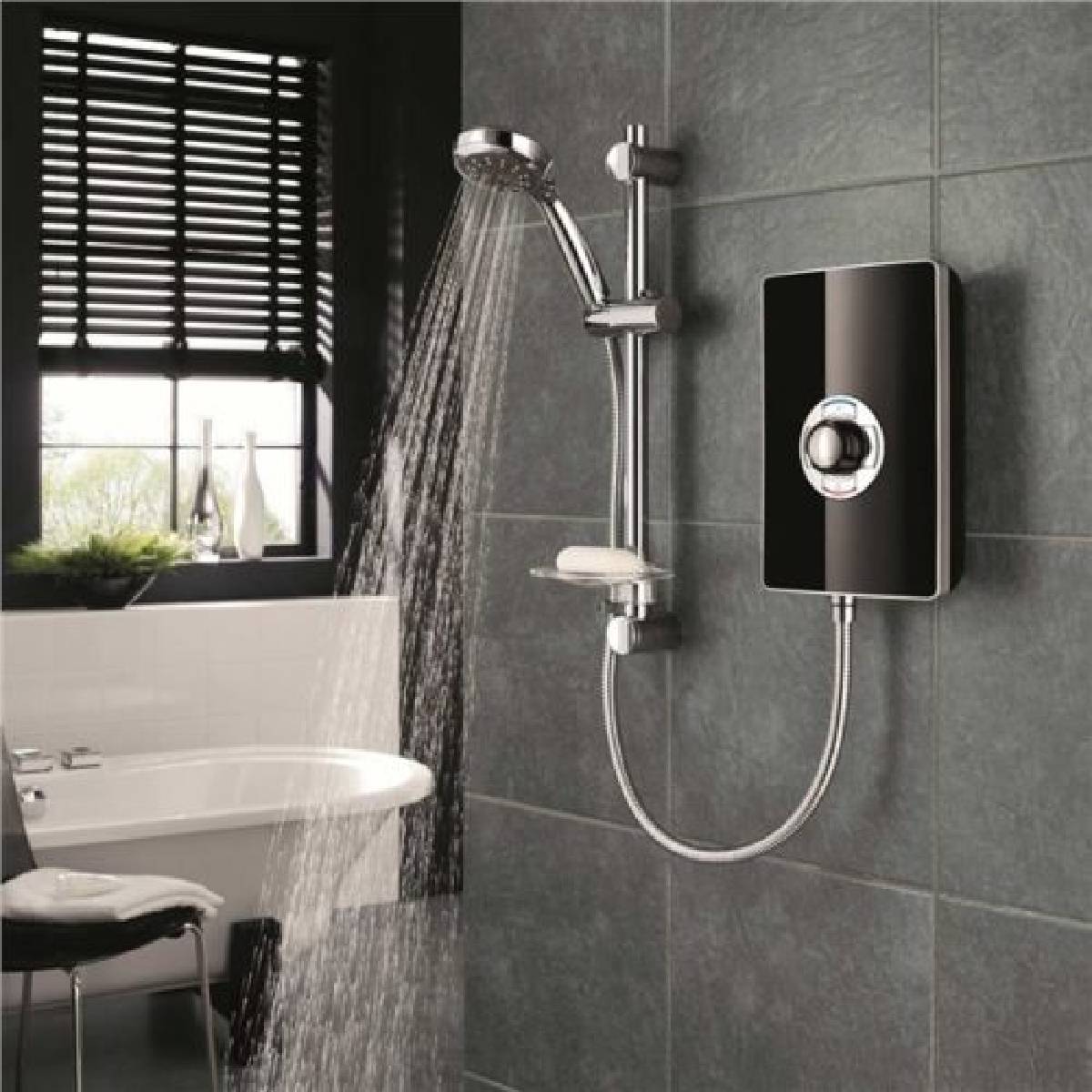
The style and design of tiles will also influence customers’ decisions.
- Granite: Another higher-end choice, granite tiles are incredibly durable and resistant to heat, scratches and stains. They are porous, but as long as they’re properly sealed at the fitting stage and then regularly resealed every couple of years, they work well in showers and are suitably water-resistant.
Tile design: The aesthetic of the tiles in terms of colour, patterning and shape is also an important consideration for customers, so weighing this alongside the other qualities will impact upon the final choice. What might appeal aesthetically may not always work practically, so being able to give insightful advice and recommendations in this regard will benefit your customers if they’re finding it difficult to decide, or don’t know where to start.
Best tiles for shower floors
While the above points should be considered when selecting tiles for anywhere in the shower, floor tiles have an extra added consideration – slip-resistance. Your customer may have opted for a dedicated shower tray or specific wet room flooring, but if they’re choosing tiles, then it’s important they remember this and don’t get distracted by an appealing glossy tile which would be impractical for the base of the shower.
Our recommendations for shower floor tiles therefore include:
- Mosaic porcelain ceramic tiles – smaller tiles with more grout lines will provide better grip.
- Matt finish mosaic tiles: A matt finish is recommended over a gloss or glaze to reduce the risk of slipping when the tiles are wet.
- Large format textured tiles – the textured surface will provide added grip which balances out the reduction in grout lines.
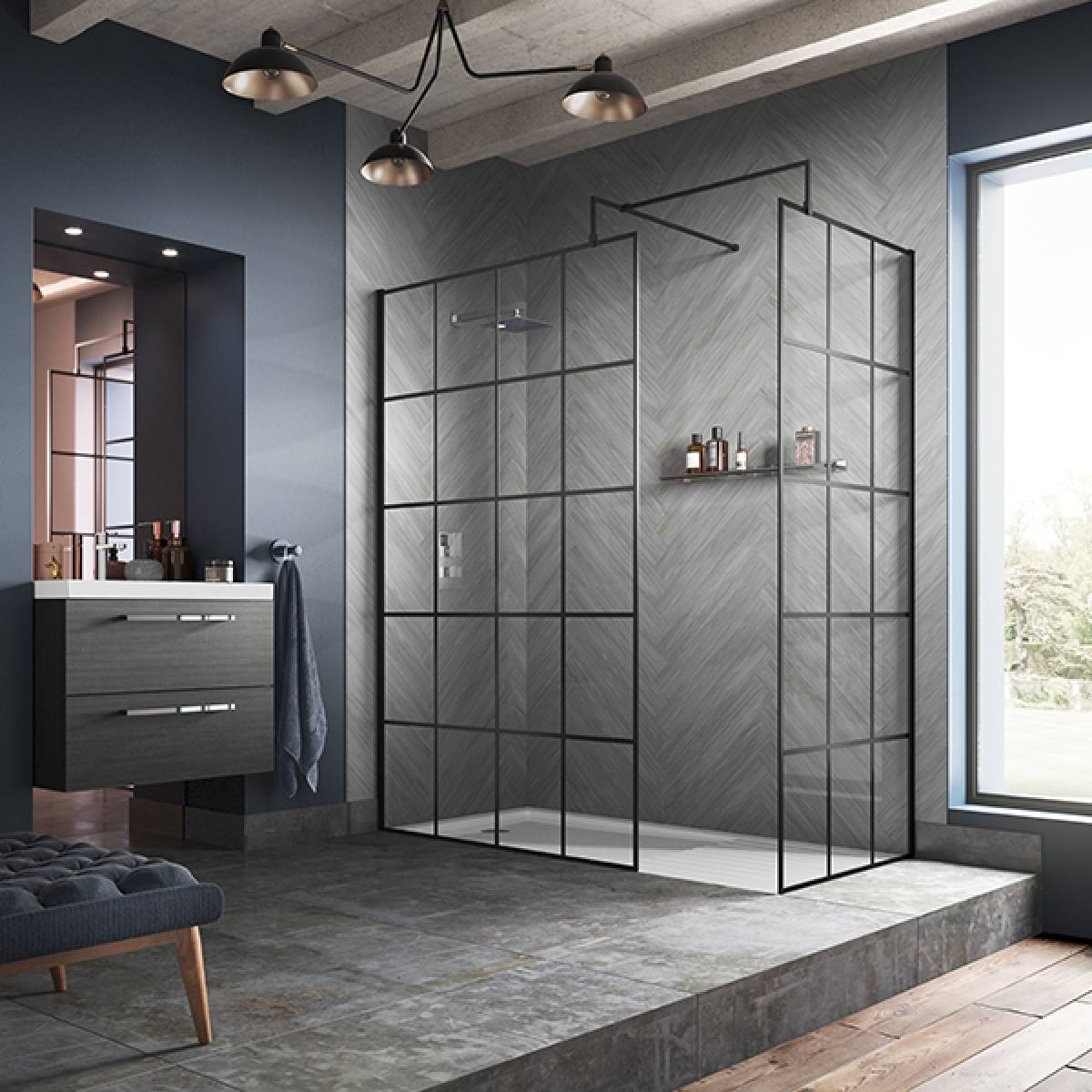
Floor tiles should be non-slip, or customers may prefer to choose a wet room or shower tray.
Quality tiles for affordable prices
No matter what type of tiling your customer wants, you’ll find an inspired range of options at Bathshack and Tileshack, with a wide range of contemporary and traditional tiles which will transform any space.
From smaller mosaic and large format tiles to porcelain and ceramic finishes – with all sorts of colours and designs within these – there’s plenty of choice when it comes to choosing quality tiling that will make showers both practical and stylish. What’s more – with prices that suit all budgets, you’ll be able to find something that works for everyone, ensuring customer satisfaction from start to finish.
For more information about our range of tiles, just email our team at info@bathshack.com or give us a call on (028) 9077 0188. Alternatively, why not visit your nearest showroom and we’ll be happy to help.


